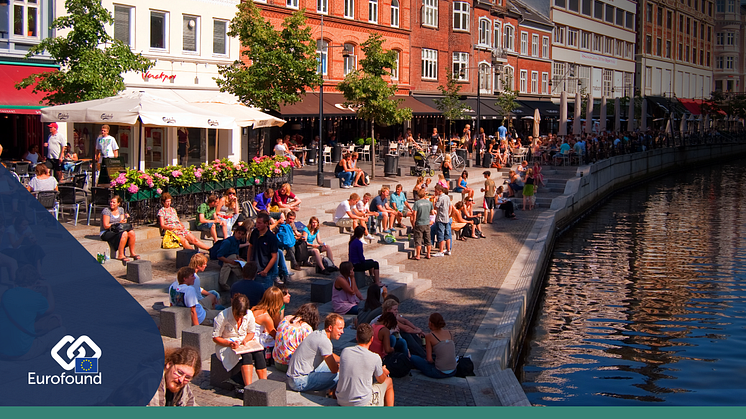
News -
Europe's employment rebounds amid existential rethink
Europe's labour markets resurged in 2022, with employment in the EU recovering rapidly in the wake of the COVID-19 pandemic — reaching an all-time high of 74.8% in the second quarter, and unemployment dropping to a record low of 6%. This rebound took place concurrently with a 'great resignation' and workers changing career paths and searching for better quality jobs that better suited their work-life goals.
Eurofound's Living and working in Europe Yearbook 2022 looks at the major trends in employment, social dialogue, working conditions, living conditions and quality of life in an important year for Europe, which saw the beginning of Russia's brutal war of aggression against Ukraine, and the fallout for Europe and its citizens, including a cost-of-living crisis felt throughout the continent.
The spiralling cost of living has been partially mitigated by a robust labour market and increasing employment, accompanied by an upgraded composition of employment, with growth in higher-paid jobs — particularly to the advantage of women. On the lower paying side of the labour market, Member States looked to further increase minimum wages to keep pace with inflation, notably in central and eastern Member States. However, despite these increases, only workers in Hungary, Croatia, Romania, Portugal, Lithuania and Estonia saw improvements in real terms.
Eurofound research has also shown that nearly one-third of workers had ‘strained’ jobs in 2022, in the sense that the negative aspects of their working conditions outweighed the positive aspects. This means they were exposed to many adverse working conditions – such as physical and psychosocial hazards, job insecurity, unsocial hours, and work intensity – without sufficient job resources to manage this.
2022 was also the year that telework became an established post-pandemic part of working life, with around one-fifth of employees working from home at least some of the time. Despite its popularity, and potential to give workers more autonomy, Europe is still adjusting to telework, and teleworkers still struggle to establish boundaries and adequately manage working time in an always-on economy.
Speaking on the publishing of the report, Eurofound Executive Director Ivailo Kalfin noted Europe's resilience during last year, '2022 was a period of remarkable constancy in a time of crisis. Labour markets remained robust during the horror and upheaval of Russia's brutal war of aggression against Ukraine, and workers had the confidence to seek better employment and look to improve their situation. This yearbook provides a fascinating insight to an eventful year and highlights the challenges that need to be overcome to improve living and working in Europe.'
More information:
- 2022 Yearbook: Living and working in Europe
- Topic page: Living and working in Europe






